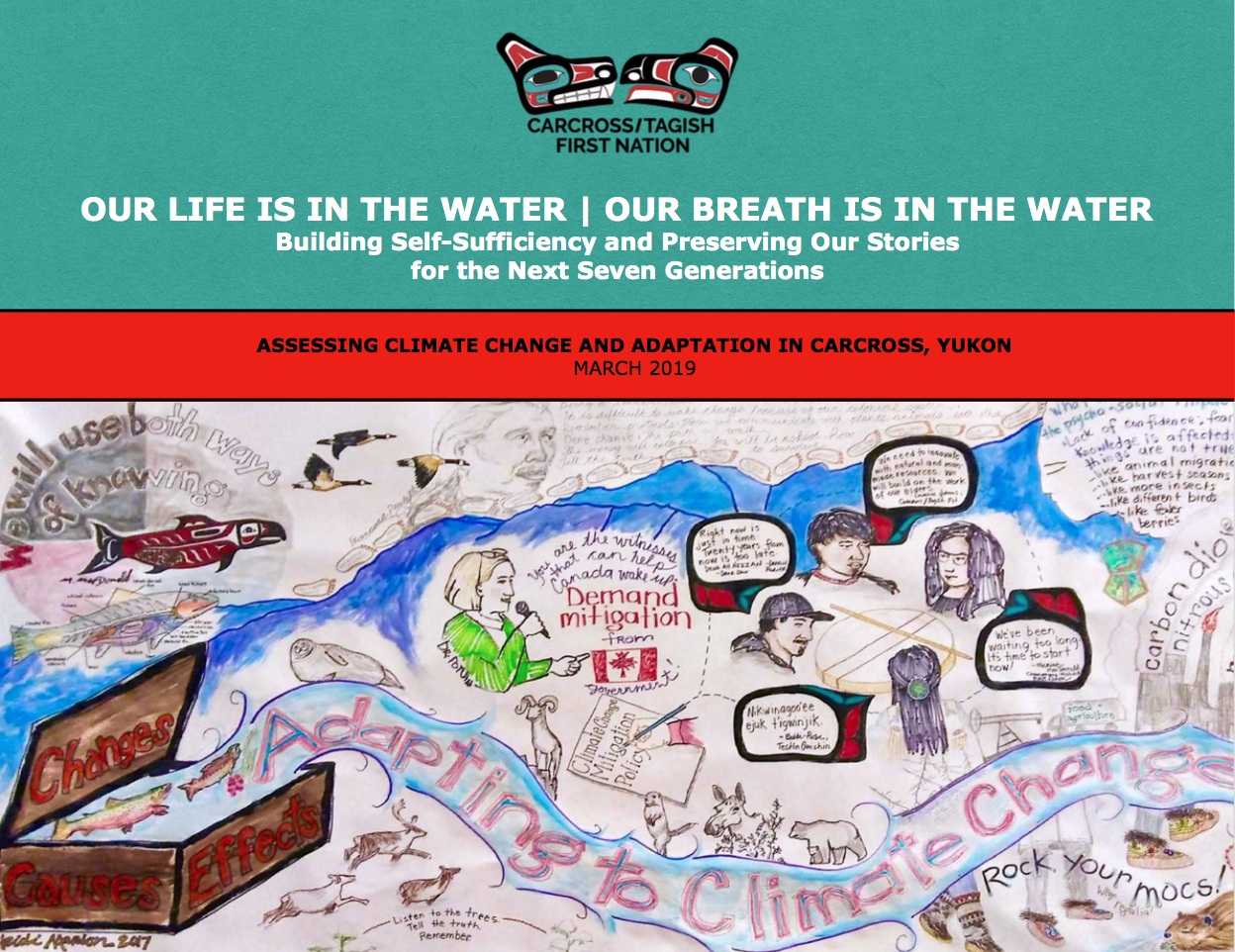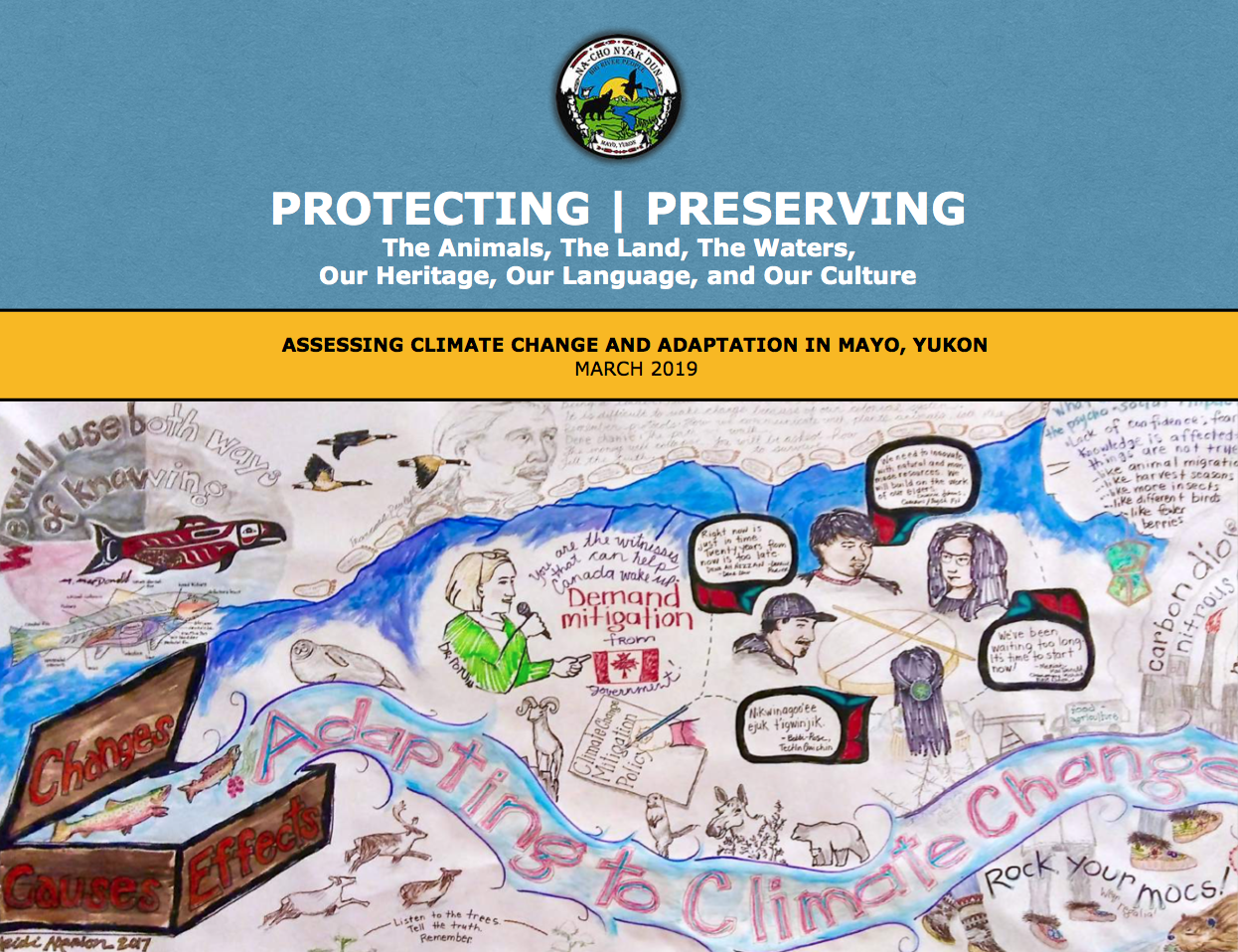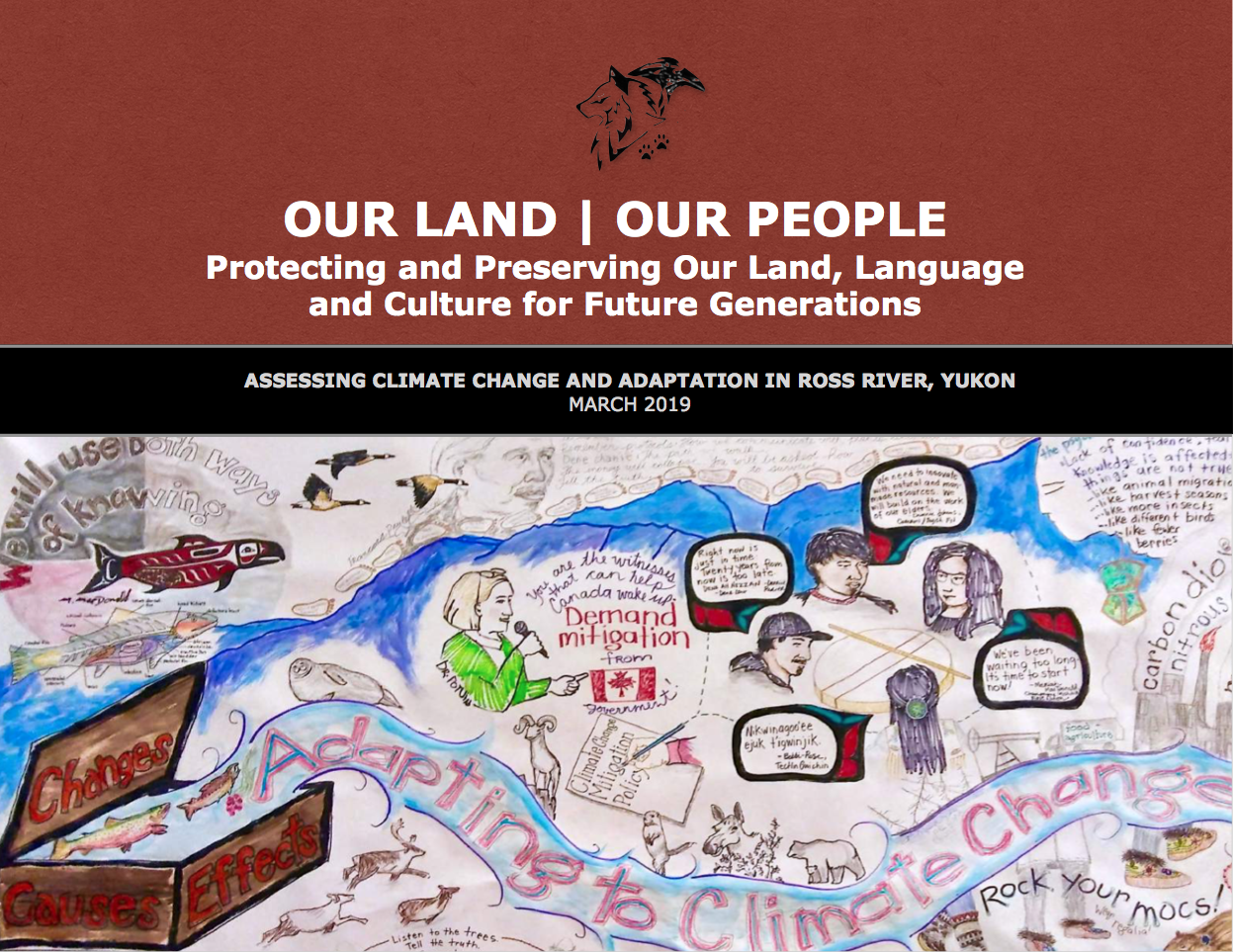Climate Change Adaptation
Over the last couple decades, researchers and communities have been documenting changes to plants, animals, land, and water in Canada's Arctic. Both the scientists and northern people are reporting profound changes such as melting ice and permafrost, forest fires, warmer temperatures, and changing weather patterns. Since our founding in 2007, there has been greater awareness and increasing concern raised regarding the issue of climate change and the impacts on northern communities.
AICBR has worked with communities in Yukon to understand the implications of changing environmental conditions on the health and wellbeing of individuals, families and communities and facilitate strategy development for climate change adaptation and food security. The impacts of climate change are directly linked to community food security and many of our projects work to understand how climate change and changing environmental conditions are affecting community access to and availability of traditional and store-bought foods and changes in food quality.
In addition to community-based strategy development, we have also trained over 150 youth from the territory and beyond on climate change and food security. Youth engagement and capacity and leadership development is a priority that intersects all areas we work in. As part of our YIC4 - Yukon Indigenous Community Climate Change Champions Project, we trained youth as champions for climate change adaptation in their communities. As part of this project, youth were supported in conducting a community assessment to better understand impacts, needs and opportunities for climate change adaptation and mitigation. In connection with this initiative, as part of the Linking a Changing Climate with a Changing Traditional Diet (Mobilizing Knowledge for Adaptation) project we have built two inventory maps of climate change and food systems initiatives in the territory. Having a comprehensive picture of what activities are going on across the territory will help individuals, communities, researchers, and policy makers find information, connect with future partners, identify gaps and strengths of current initiatives, and inspire action.
Climate Change Reports, Publications & Documentaries
(For full list of reports - go to Reports section)
Linking a Changing Climate with a Changing Traditional Diet: Mobilizing Knowledge for Adaptation (2017-2021)
[link] Stories of Food, Culture and Community Resiliency - Building Sustainable Local and Traditional Food Systems as an Adaptation to Climate Change in the Yukon (2020)
[pdf] Adapting to Climate Change and Building Local Food Systems - A Resource Brochure (2020)
[pdf] Map. Connect. Adapt. Mobilizing Knowledge for Northern Community Climate Change Adaptation and Food Systems Development (2019)
[pdf] Mapping Yukon Climate Change and Northern Food Systems Assets - Summary Report (2019)
[pdf] The Impacts of Climate Change on Traditional and Local Food Consumption in the Yukon - A Literature Scoping Review (2018)
Yukon Indigenous Community Climate Change Champions Training Project
Community Assessment Reports (click on images to link to reports)
[pdf] Exploring Climate Change in My Community: Assessing Opportunities for Action -Youth Climate Change Community Assessment Toolkit (2018)
[pdf] Download additional Toolkit Workbook sheets
[pdf] YIC4 - Yukon Indigenous Community Climate Change Champions Project - Newsletters (December 2018/February 2019
[pdf] Curriculum and Training Guide
[pdf] The Impacts of Climate Change on Traditional and Local Food Consumption in the Yukon - A Literature Scoping Review 2018
[pdf] Adapting to Climate Change and Keeping Our Traditions - A Collaboration between Selkirk First Nation and AICBR 2015 - 2016
[pdf] Climate Change and Food Security in the North - A Literature Review 2010
[pdf] Poster: Vuntut Gwitchin Climate Change and Health Research in Northern Yukon
Ä si Keyi, means "Our Grandfather's land." This dramatic sub-arctic land is changing. The film tells a story about how climate change and the history of food insecurity have affected Kluane First Nations people and the land they call home. It portrays strategic adaptation by embracing their past as the foundation towards prioritizing their culture and traditional values, practices and knowledge. Ultimately, it is a story of resilience of a peoples in the wake of a changing world.
link: https://www.youtube.com/watch?v=83w3iBDK684
This video by Robert Joe was created for Selkirk First Nation's Keeping Our Traditions project (2015-2016), in collaboration with the Arctic Institute of Community-Based Research in Pelly Crossing, Yukon Territory. The project was an initiative of the Selkirk First Nations government to find strategies for keeping traditional Southern Tutchone practices, values and knowledge amidst the challenges of a changing climate and reconnecting youth to the land.






